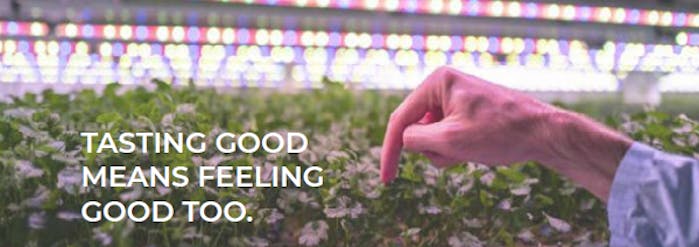As populations grow and buildings get taller, the farming industry has begun to grow with them.
Back in 2017, James Lloyd-Jones was introduced to Vertical Farming and the revolutionary Jones Food Company was born. Hydroponics has the potential to grow the huge volumes of food necessary to feed the world’s population sustainably and affordably.
At Jones Food Company, they understand the only way vertical farming can provide quality produce at an affordable price is by producing it at scale. This is why they have built the largest vertical farm in Europe which is capable of growing up to 300 tonnes of herbs and vegetables across 12 crop cycles a year.
The introduction to this technology has sparked a journey focused on bringing this incredible way of farming to everyone, everywhere. It will enable the world’s populations to have access to high quality fresh produce, regardless of the changing seasons.
At their core they are farmers, passionate about leading the next agricultural revolution. The team is composed of agricultural specialists, technical individuals and dreamers, who all bring something different and exciting to the table.
The farming technology has increased in popularity since its introduction, due to its sustainability benefits, from low wastage to requiring smaller areas of land. Partnering with Ocado last year was a huge vote of confidence in the company and for the industry as a whole. The farm grows produce that goes into approximately 11 million sandwiches per week.
Using this unique hydroponic system for their indoor farms allows them to feed their plants exactly what they need. The farms provide the perfect amount of light, nutrient rich water and CO2 infused air. Growing indoors also removes the need for pesticides and herbicides, making their crops ready to eat.

Although we should all have access to the freshest produce at an affordable price, it is critical that the food production process has as little effect on the environment as possible.
Hydroponics uses much less water than traditional farming, but the future of agriculture is energy hungry and emission heavy. So what steps is Jones Food Company taking to lessen their negative impacts on the environment?
With the aim of being carbon neutral by the end of 2021, Jones Food Company would become the first net-zero, vertical farm in the world. Currently, solar panels installed on the roof supply around 10% of the site’s total electricity requirements annually. However, they are committed to sourcing all electricity from 100% renewable sources from the end of 2021.
The water used in the growing process is 100% re-used and their farms also use rainwater reserves to feed their plants. Not only do their vertical farms aim to grow as sustainably as possible, but they also commit to 100% sustainable food packaging to minimise environmental damage through our consumption of food.
The future of farming has arrived.
Back to all posts